- Home
- Daphne Du Maurier
The Scapegoat Page 16
The Scapegoat Read online
Page 16
'That's all right,' I told her, 'we'll do it later. The bank is more important.'
'But the shops will be shut,' she urged.
'That can't be helped,' I said. 'We'll have to risk it.'
'I wonder if they mend porcelain in that place by the Porte de Ville,' she said. 'You know, where they have candlesticks.'
'I don't know,' I said, 'I shouldn't think so. Look, will you sit and wait for me here in the car? It will be very dull in the bank.'
'I don't mind. I'd rather come.'
I was not sure I wanted her sharp ears overhearing all I said.
'Listen,' I answered, 'I may be some time. And there will be a lot of talk. It is much better for you to stay here, or go and wait with aunt Renee.'
'Oh no,' she said, 'that's much worse than the bank. Oh, Papa, couldn't I go to the shop by the Porte de Ville and see if they would mend the porcelain, and then come and meet you at the bank?'
She stared up at me expectantly, delighted with this solution. I hesitated.
'Where is it?' I said. 'I've forgotten. What about traffic?'
'Just inside the Porte de Ville,' she said impatiently. 'There's never any traffic. You know, next to the umbrella shop. And then I'll come back past the church and straight to the bank. It's barely four minutes.'
I looked up and down the avenue where we had parked the car. The flamboyant Gothic spire of the great church topped the trees. Wherever she meant to go could not be any distance.
'All right,' I said, 'here's the parcel. Be careful, now.' I put the broken pieces wrapped in cellophane and paper into her hands.
'Do they know you in the shop?' I asked.
'Oh, surely,' she said. 'I've only got to say the name de Gue.'
I watched her across the road and then turned left, back to the market-place and to the obvious bank building standing at the corner. I pushed through the doors, and with a brilliant feat of memory asked for Monsieur Peguy.
'I'm sorry, Monsieur le Comte,' said the clerk, 'Monsieur Peguy is still away. Is there anything I can do for you?'
'Yes,' I answered, 'I want to know how my account stands.'
'Which one, Monsieur?'
'All of them.'
A woman typing at a desk behind the counter looked up and stared.
'Excuse me, Monsieur le Comte,' said the clerk, 'do you mean you require the bare balances, or do you want to see a full statement of figures?'
'I want to see everything,' I repeated.
He disappeared and I lit a cigarette, leaning against the counter and listening to the click-click of the woman's typewriter beating against the slower tick of the clock on the wall. There was the close, airless smell familiar to all banks, and I thought of the many times I had cashed small travellers' cheques in similar branches throughout the country, and now, like a gangster, was preparing to probe the secrets of another. The clerk returned with a sheaf of papers in his hand.
'Perhaps you would like to take a seat in the office, Monsieur le Comte?' he said, and he led the way through to a small room with a glass-fronted door.
He left me alone with the file, and as I turned the papers I realized that I was as lost before these columns of figures as I had been before the bills and statements in the verrerie. I looked them over one by one, but could make nothing of them, and then the clerk returned to find out whether I wanted any more information.
'Is this all?' I asked. 'You have no other papers of mine?'
He looked at me inquiringly, a little puzzled, and said, 'No, Monsieur le Comte, unless, of course, there is anything you wish to look at in your safe in the vault.'
I had a vision of clinking bags of gold in some massive safe. 'In my safe?' I asked. 'What have I got in my safe?'
'I don't know, Monsieur le Comte,' he said, looking offended, and murmured something about its being unfortunate that Monsieur Peguy was away.
'Is there time for me to look in it before you close?' I asked.
'Certainly,' he replied, and he disappeared again and came back with a bunch of keys, and I followed him down a long flight of stairs to the basement. He opened a door with one of the keys, and we were in a vast, low room like a cellar, the walls lined with safes, all numbered. He stopped before number 17, took another of the keys on his bunch, put it in the lock, and turned it. I waited for the door to open, but instead he withdrew the key, stood back, and looked at me expectantly. Seeing that I made no move, he said with a puzzled air, 'Monsieur le Comte has forgotten to bring his key with him?' Cursing myself for a fool at not knowing what he expected of me, I felt in my pocket and brought out Jean de Gue's bunch of keys. One of them - longer and bigger than the others - looked to me as if it might be right, and, stepping forward with an air of confidence which must surely seem as false to him as it did to me, I put it in the lock, and thank God it turned, and when I tried the handle of the safe the door swung open.
The clerk, murmuring that he would leave Monsieur le Comte to find the papers he wanted, went out of the vault, and I put my hand in the safe, to find no bags of gold but another mass of papers, all of them tied with tape. Oddly disappointed, I took them to the light. The title of a document caught my eye, 'Marriage Settlement of Francoise Bruyere', and I was beginning to untie the tape when the clerk returned.
'Your little girl is outside,' he said. 'She asked me to tell you that everything is arranged about the porcelain, and can she go back in the lorry with Madame Yves?'
'What?' I asked impatiently, preoccupied with the papers in my hand.
He repeated the message stiffly, but it made no sense to me, and I did not want to inquire what lorry he was talking about or who Madame Yves might be, for clearly I should know.
'All right, all right,' I said, 'tell her I'll be along in a moment.'
Now I had the tape undone and had opened the document, and I immediately forgot about being in the vaults of the bank, for this was familiar ground in spite of the legal jargon. I might have been browsing through archives back in Tours or Blois, or in the Reading Room at the British Museum. 'Regime dotal ... majorat ... usufruit...' here were all the perplexities of French matrimonial law, the sort of thing I found fascinating and incomprehensible in one; and, time of no account, I sat down and began to read.
The father of Francoise, a Monsieur Robert Bruyere, had evidently been a rich man with little faith in the stability of Jean de Gue, and no desire to bolster the tottering fortunes of the family of St Gilles. Her dowry, which was considerable, was therefore in trust for the male heir, but the income from this trust could be used during the minority of the said heir, husband and wife having joint control over it. In default of a son, when Francoise reached the age of fifty the trust funds were to be divided between her and any surviving daughters of the marriage, or, if she predeceased her husband before she reached the age of fifty, between the husband and any daughters. The point was that the income from this vast trust could only be used by the parents on the birth of a male heir, and if no male child was born no one could touch a sou of the money until Francoise reached the age of fifty - unless, of course, she were to die before that age. On the date of the marriage itself a capital sum had been allotted to the husband for his own use, but this was less than a quarter of the total dowry.
I read the complicated document over a dozen times, and I understood at last the allusions dropped by Francoise and the others to the advantage of the next child being a boy. I wondered what whim had caused her father to tie up his fortune in this fashion, and whether Jean de Gue, on his marriage, had simply seized his share of it and gambled on a son. Poor Marie-Noel, no trust money for her if a brother came along. As to Jean de Gue himself, he would get control of half the capital itself only if there was no heir and Francoise died before the age of fifty ...
'Excuse me, Monsieur le Comte, but will you be much longer? I have to go to lunch. We close at twelve, as Monsieur le Comte is no doubt aware, and it is already twenty past.'
The clerk stood beside me, wearing the injured expression of
one who has lost valuable minutes of his time, and with an effort I brought myself back to reality. For a moment it had been as though I were sitting in that vast bedroom in the tower, hearing again the comtesse's voice - 'Beggared ... and likely to remain so, unless Francoise produces a son, or ...' Now I understood the words, though the hidden meaning of her tone, her covert glance, were still a mystery. I only felt, dimly, that there was a bond between us unbreakable and strong, a secret world of mother and son which no outsider, neither wife nor child nor sister, could enter; and the masquerader that was my outward self hovered on the fringe of discovery, seeking, yet fearful of what it might find.
'I'm coming,' I said, 'I didn't realize it was so late.'
I put the documents back in the safe. As I did so, a paper fell out which had not been tied up in tape with the others, but seemed to have been thrust hastily in. I glanced at it, and saw that it was a letter from the lawyer called Talbert, written two or three weeks earlier. Odd words caught my eye - 'verrerie', 'rentes', 'placements', 'dividendes', - and, sensing that there might be the clue to the whole financial tangle, I put it in my pocket. Once more we went through the ritual of the keys, and then I followed the clerk out of the vault, up the stairs and into the little office.
I looked about me, still absent in thought, my mind filled with the details of the marriage settlement, and then I remembered and said, 'Where's the child?'
The clerk replied, 'She's been gone some time.'
'Gone? Gone where?'
'Monsieur le Comte, you said I was to tell her it would be all right for her to do as she asked and go with this person in a lorry.'
'I said nothing of the sort!'
I spoke sharply, furious with myself and with him, and he repeated, more offended than ever, the words that I had used, giving them a sense I had never intended. I saw that my own impatience had been to blame - I had spoken quickly, thoughtlessly, wanting to read the document.
'Who was this person, did you say? Where did she go?' I asked, responsibility flooding me, with a sudden vision of gypsies, kidnappers, little girls murdered in woods.
'I rather think it was one of your own lorries from the verrerie, Monsieur le Comte,' said the clerk. 'Some of your workpeople had been to the station. The child seemed perfectly at ease. She climbed up in the front seat with the woman.'
There was nothing to be done about it. Marie-Noel must take her chance. She would either be delivered safely at the chateau or butchered in the forest. If there was any mischance, I should be to blame.
The clerk led me past the counter, empty now and silent, and let me out, locking and bolting the door behind me. I turned left and went across the Place towards the church, for I must at least discover what had happened about the broken porcelain. Marie-Noel had said something about the Porte de Ville. Where was the Porte de Ville? I went back in the direction I had seen her take, beyond the car, and although irritated now, and anxious, I was at the same time struck by the beauty of the town, the curious charm of canals winding peacefully past the old houses, little footbridges leading across the water to back gardens, roofs yellow with age, overhanging eaves and twisted beams. At last I came to the Porte de Ville itself, an ancient gateway to the once fortified town, with a stone bridge where the drawbridge used to be. I passed under the archway to what was evidently the main shopping street of the town, and at once I saw, on the right-hand side, the place that the child must have meant, an antique shop with china and silver in the window. But the door was fast shut and there was a notice beside it saying they closed from midday until three.
I turned away, and then saw that a man was watching me from a shop on the opposite side of the street.
'Bonjour, Monsieur le Comte,' he said. 'Are you looking for Madame?'
I was evidently known, but I did not want to become involved.
'It doesn't matter,' I said. 'It's not important.'
A sort of half-smile appeared on his face. He seemed amused. 'I don't wish to be indiscreet,' he said, 'but Madame can't hear the bell when the door is shut. It would be better to take the garden entrance.'
He went on smiling, delighted to be of use to me, but I had no intention of walking into any back garden and disturbing the antique merchant during the sacred siesta hour. I thanked him and went back under the Porte de Ville, and glancing leftwards, in vague curiosity, saw how the shops and houses of the narrow main street backed on to the canal, and that the rear of the antique shop itself was in reality a small eighteenth-century house, with a balcony and strip of garden fronting the canal like a miniature palazzo on a Venetian backwater. The windows were wide open to the sun, and a cage with budgerigars stood on the balcony. A narrow plank bridge led from the road to the garden. It was one of those corners that a tourist brochure describes as 'picturesque', and I wondered how many coloured replicas on postcards were on sale within the town. As I stood there, pausing to light a cigarette, someone came out on to the balcony to feed the birds, and I recognized in an instant the blonde woman in the bright blue coat who had laughed at Marie-Noel and myself in the market-place. Was she the keeper of the antique shop? If so, then I had no objection to asking what arrangements had been made to mend the broken porcelain.
I advanced towards the plank bridge, feeling a little overbold. 'Excuse me, Madame,' I called, 'I tried the shop just now, but the door was locked. Did my daughter visit you this morning?'
The woman turned round, surprised, and then to my intense astonishment burst into laughter.
'Idiot,' she said. 'I thought you'd gone home. What are you doing, hanging about at the street corner and playing the fool?'
The familiarity, the use of the intimate 'tu', shook me off balance. I could only stare, wondering how to answer in character. She looked away to her right, past the Porte de Ville to the Place Saint-Julien. It was truly the siesta hour. The streets were empty.
'There's no one about,' she said. 'Come on in.'
The reputation of Jean de Gue in Villars was evidently a light one. I hesitated, and then, glancing across the square, saw the decisive factor in favour of acceptance. It was Renee, whom I had forgotten all about, long finished at the coiffeur, tramping the town in search of me. With a sudden flood of realization I remembered that, now Marie-Noel had disappeared into the unknown in a lorry, I should have to drive Renee back to St Gilles alone. I was trapped. The woman in the blue coat followed my eyes and saw my dilemma.
'Quick,' she said, 'she hasn't seen you - she's looking the other way.'
I dashed across the little bridge and on to the balcony, and, laughing still, she pulled me into the room.
'There's luck,' she said. 'A moment later she'd have caught us.'
She shut the long window and turned to me, smiling, the same look of intense amusement on her face that I had noticed and indeed shared in the market-place. But now there was nothing guarded about it, or disguised: her whole expression was open and free.
'That child of yours is adorable,' she said, 'but it was very naughty of you to send her here. And why for heaven's sake did you wrap up those pieces of broken porcelain in cellophane and paper with a card addressed to me? She said something about a mistake, and a friend of yours in Paris, but one of these days, my angel, your jokes will go too far.' She put her hand in the pocket of her blue coat and pulled out a piece of crumpled cellophane and some string. 'I'll see to your broken porcelain, and anything else you care to send in from St Gilles, but don't use your child or your wife or your sister as your deputy, because it's making fools of them and I have too much respect for your family.'
She dived into the other pocket and produced a crumpled card. On it was written 'For my beautiful Bela, from Jean.' The porcelain dog and cat lay in pieces on a table. The only link that was missing was the outsize bottle of 'Femme'.
12
Although she had closed the long window, the billowing casement curtains masking the view, the room was full of sun. I had an impression of blue-grey walls and white cushions, but the effe
ct, instead of being cold, was light as air. The dahlias that I had seen her carrying from the market-place were red and gold, and now they spilt in profusion from a vase in the corner, the sun upon them still. There was a bowl of fruit upon a table, a bookcase, a Marie Laurencin drawing hanging above the fireplace. Deep chairs stood about the room, and a Persian cat cleaned its paws in one of them. Close to the window was a low flat table with artist's materials upon it, thin, small brushes and a special sort of paper. There was a smell of apricots.
'What are you doing in Villars in the middle of the day?' she asked.
'I went to the bank,' I said, 'and forgot the time. I was supposed to pick up one of the family from the coiffeur.'
'You've left it rather late,' she said. 'Does she enjoy walking about the streets?' She went to a corner cupboard and brought out a bottle of Dubonnet and two glasses. 'Where's the child?'
'I don't know. She disappeared in a lorry with some workmen.'
'That shows good taste. You've brought her up well. Are you going to have lunch with me? It's all here - ham, salad, cheese, fruit and coffee.' She opened a hatchway between this room and another, and there was a tray laid ready, with food upon it.
'How can I,' I asked, 'with my sister-in-law waiting for me outside?'
She went over to the window and opened it, and looked out across the balcony to the Place Saint-Julien.
'She's not there any more. If she has any sense she will go and sit in the car, and then, when she becomes tired of waiting, drive back to St Gilles.'
I wondered if Renee could drive. I did not care. It was more interesting to speculate on why my companion called herself by the name of successive Hungarian kings. I sat down in one of the deep chairs and sipped Dubonnet. I felt suddenly devoid of responsibility, and content to let things take their course. Jean de Gue had too many women in his life.
'You can imagine how I felt,' she said, 'when Vincent came to me just this morning and told me that your small daughter was in the shop asking if we could mend something very precious belonging to her mother. I couldn't imagine what had happened - for one moment I thought your wife had found out that I had done the miniature. What about the miniature? Did you give it to her? Did she like it?'

 Jamaica Inn
Jamaica Inn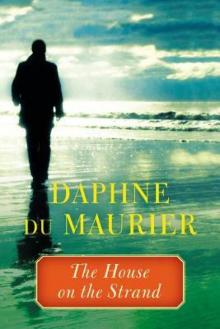 The House on the Strand
The House on the Strand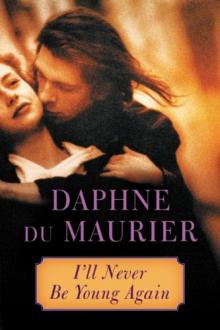 I'll Never Be Young Again
I'll Never Be Young Again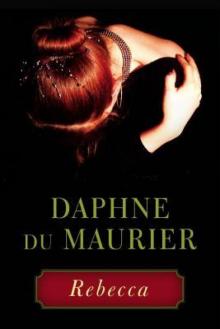 Rebecca
Rebecca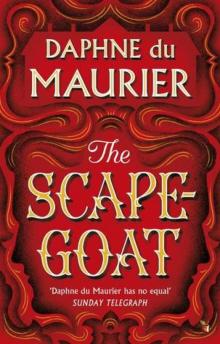 The Scapegoat
The Scapegoat The Birds and Other Stories
The Birds and Other Stories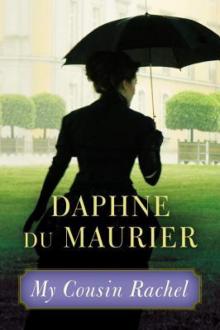 My Cousin Rachel
My Cousin Rachel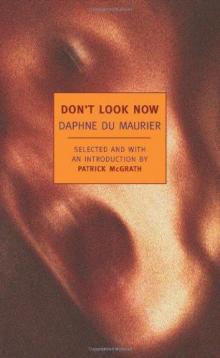 Don't Look Now
Don't Look Now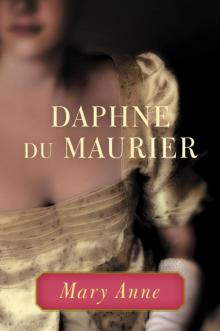 Mary Anne
Mary Anne Hungry Hill
Hungry Hill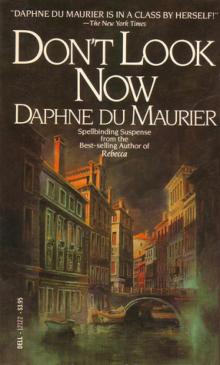 Don't Look Now and Other Stories
Don't Look Now and Other Stories The Loving Spirit
The Loving Spirit Rule Britannia
Rule Britannia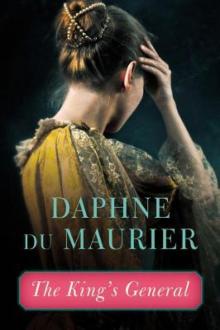 The King's General
The King's General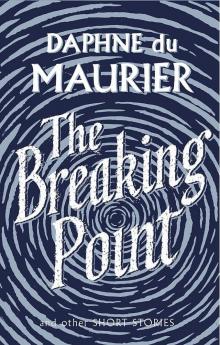 The Breaking Point: Short Stories
The Breaking Point: Short Stories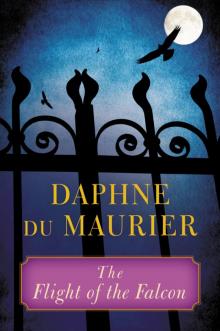 The Flight of the Falcon
The Flight of the Falcon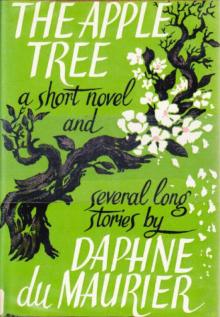 The Apple Tree: a short novel & several long stories
The Apple Tree: a short novel & several long stories The Breaking Point
The Breaking Point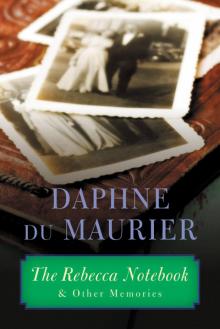 The Rebecca Notebook
The Rebecca Notebook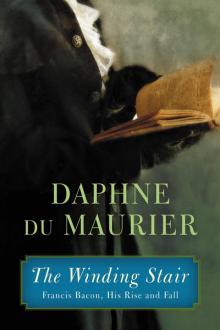 The Winding Stair: Francis Bacon, His Rise and Fall
The Winding Stair: Francis Bacon, His Rise and Fall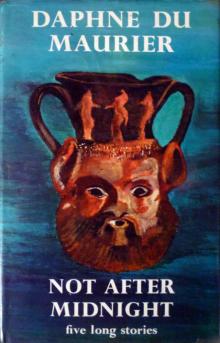 Not After Midnight & Other Stories
Not After Midnight & Other Stories The Doll
The Doll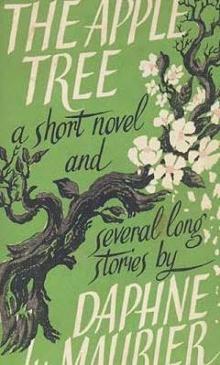 The Apple Tree
The Apple Tree